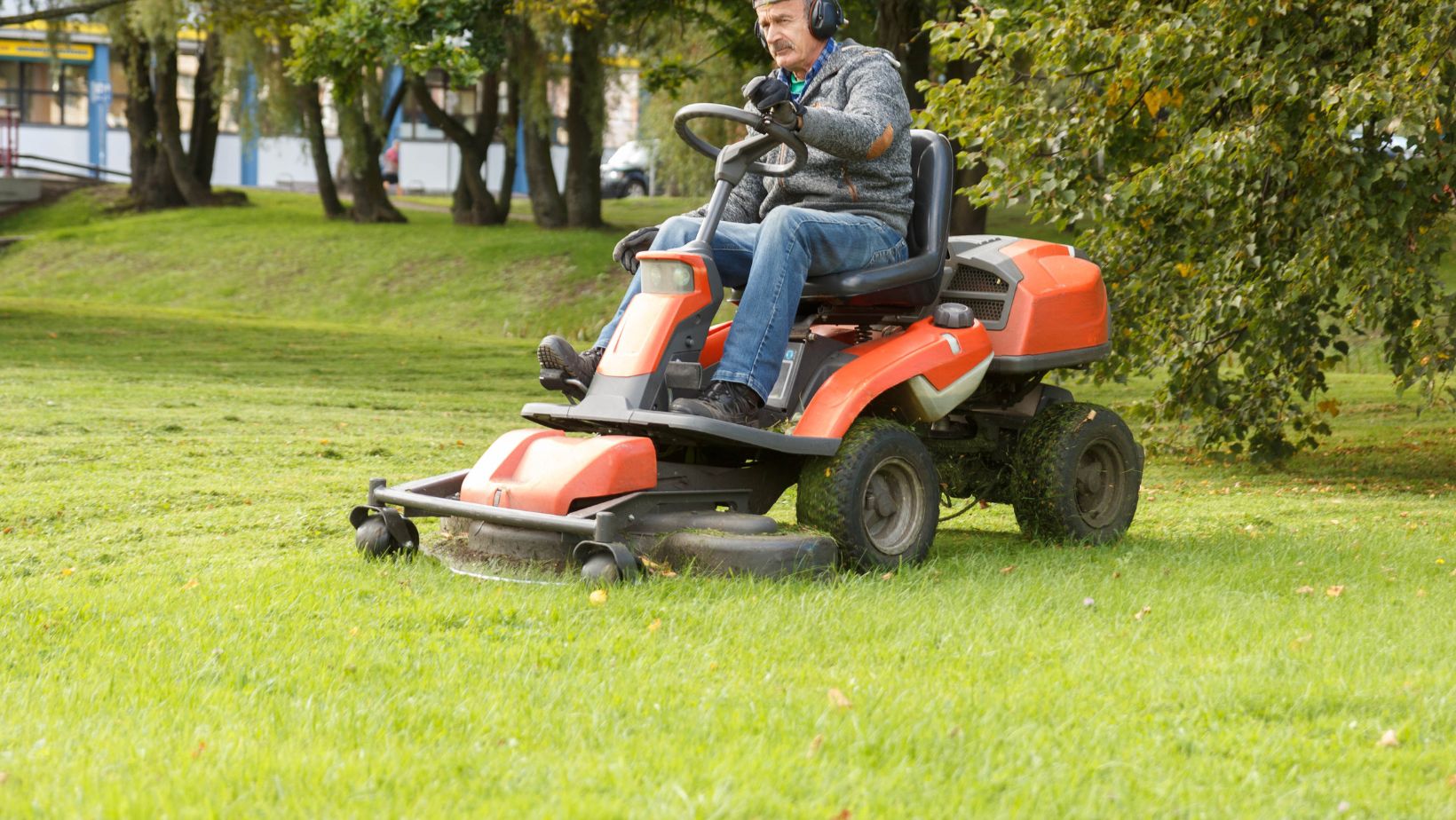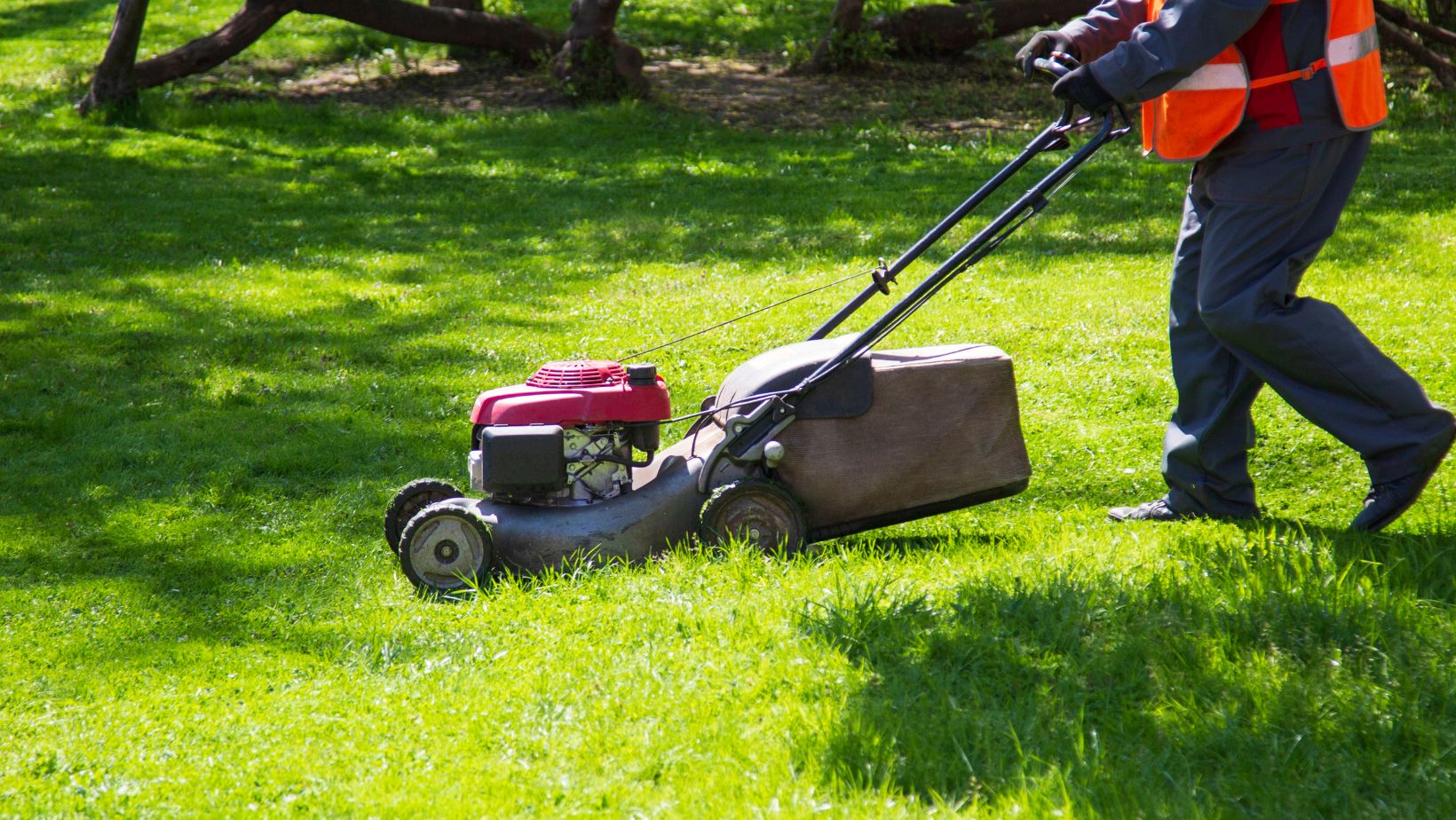
Leaving a lawn mower outside in the rain can have detrimental effects on its performance and longevity. While some mowers may be designed to withstand light rain or have water-resistant features, it’s generally not recommended to expose them to heavy or prolonged rainfall.
Rainwater can seep into the engine and other vital components of the mower, leading to corrosion, rust, and damage. Moisture can also cause electrical issues, such as short circuits or malfunctioning ignition systems. Additionally, excessive moisture can promote the growth of mold and mildew inside the mower’s internal parts.
To protect your lawn mower from rain damage, it’s best to store it in a covered area like a garage or shed when not in use. If you don’t have access to indoor storage space, consider investing in a waterproof cover specifically designed for lawn mowers. This will provide an extra layer of protection against moisture.
The Impact Of Rain On Lawn Mowers
When it comes to the question of whether you can leave a lawn mower outside in the rain, there are a few key factors to consider. While most lawn mowers are designed to withstand some exposure to the elements, prolonged exposure to rain can have a negative impact on their performance and longevity. Let’s take a closer look at how rain affects lawn mowers:
- Moisture and Rust: One of the biggest concerns with leaving a lawn mower outside in the rain is the potential for moisture buildup, which can lead to rust formation. Rust not only weakens various components of the mower but also hampers its overall functionality. Over time, rusty parts may become less efficient or even fail completely, resulting in costly repairs or replacement.
- Electrical Components: For electric-powered lawn mowers, water can pose an even greater risk as it increases the chances of electrical damage. Water intrusion into sensitive electrical components such as motors and control panels can cause short circuits or complete malfunctions. It’s crucial to ensure that these parts remain dry and protected from any direct exposure to rain.
- Engine Performance: Rainwater getting inside a gas-powered mower’s engine can lead to issues like fuel contamination and difficulty starting up. The moisture mixing with gasoline may cause clogging in carburetors or fuel lines, affecting proper combustion and engine performance. Additionally, excessive water intake through air filters could potentially damage internal engine parts.
- Grass Clumping: Leaving your lawn mower out in heavy rain might result in wet grass clippings clumping together inside the cutting deck or bagging system if equipped. This not only obstructs efficient grass collection but also increases the likelihood of clogs and blockages during operation.
To mitigate these risks and extend your lawn mower’s lifespan, it is generally recommended to store it indoors when not in use or at least provide reliable shelter from inclement weather conditions like rain.

Can You Leave A Lawn Mower Outside In The Rain
When it comes to the question of whether you can leave a lawn mower outside in the rain, it’s important to consider how exposure to water can lead to rust and corrosion. While some lawn mowers are built with weather-resistant features, leaving them exposed to constant rain can still cause damage over time. To protect your investment and ensure your mower stays in top shape, here are a few tips for preventing rust and corrosion:
- Store your lawn mower in a covered area: The best way to shield your mower from rain is by storing it in a shed, garage, or other covered area when not in use. This will provide protection against direct exposure to rainwater.
- Use a waterproof cover: If you don’t have an indoor storage option, consider investing in a waterproof cover specifically designed for lawn mowers. These covers are made from durable materials that repel water, keeping your mower dry even during heavy downpours.
- Clean and dry after each use: After mowing your lawn, take the time to clean off any grass clippings or debris from your mower’s exterior surfaces. Then, thoroughly dry the machine before storing it away. Moisture left on the surfaces can promote rust formation over time.
- Apply a protective coating: Applying a thin layer of oil or lubricant on metal parts susceptible to rust can act as a barrier against moisture and prevent corrosion. Be sure to follow the manufacturer’s recommendations for suitable products and application methods.
- Check for any signs of damage regularly: Regularly inspecting your lawn mower for any signs of wear or damage is essential for early detection and prevention of rust or corrosion issues. Pay close attention to areas such as blades, undercarriage, handles, and fuel tanks.
Remember, prevention is always better than dealing with the inconvenience and costs of repairing or replacing damaged parts. So, take care of your mower, keep it protected from the rain, and it’ll continue to serve you well for years to come.





